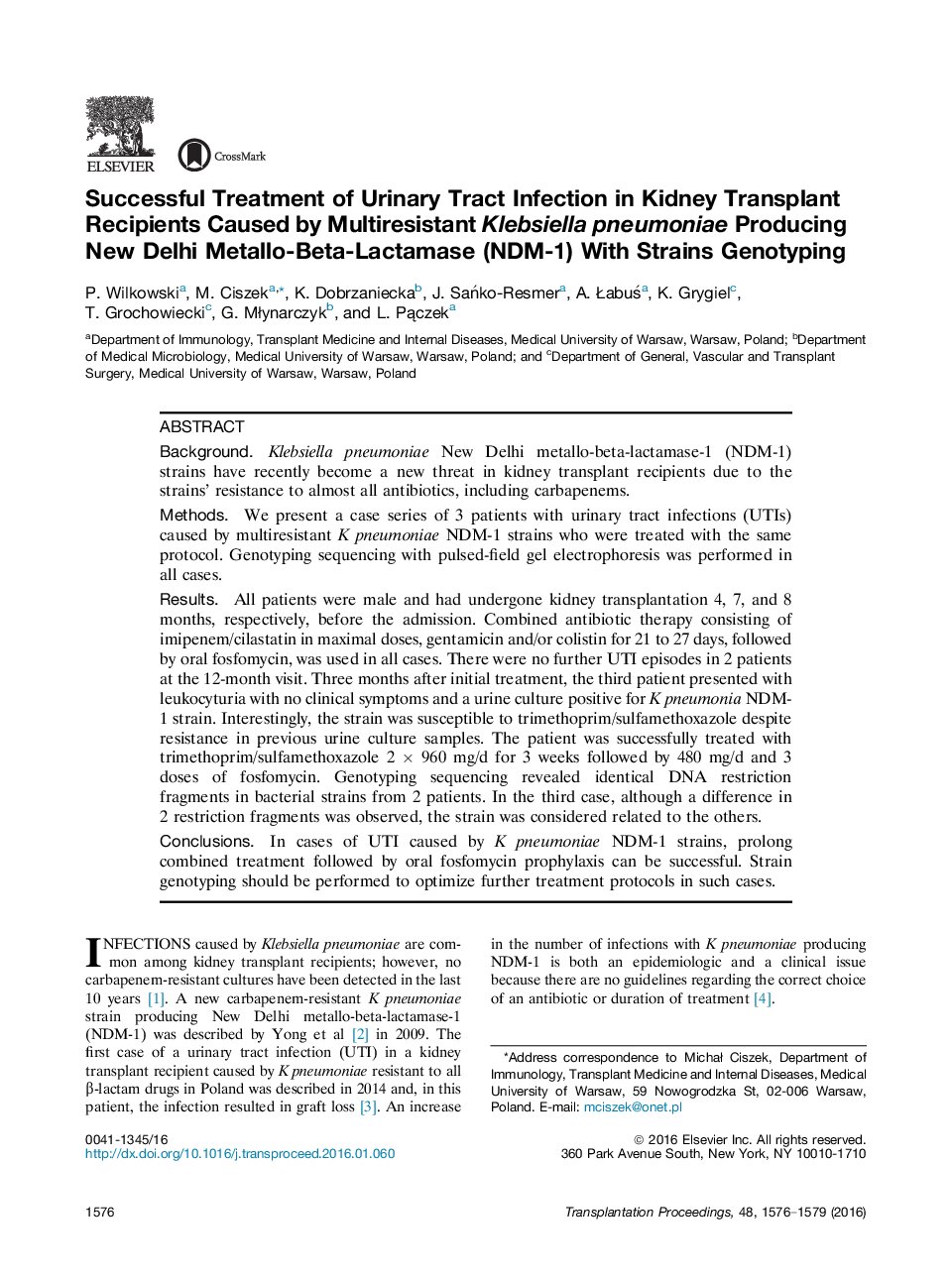| Article ID | Journal | Published Year | Pages | File Type |
|---|---|---|---|---|
| 4256076 | Transplantation Proceedings | 2016 | 4 Pages |
•Three weeks of combined antibiotic treatment should be used in case of Klebsiella pneumoniae New Delhi metallo-beta-lactamase-1 urinary traction infection.•Therapy should consist of aminoglycosides and/or colistin.•Strain genotyping should be performed to optimize further treatment protocols in such cases.
BackgroundKlebsiella pneumoniae New Delhi metallo-beta-lactamase-1 (NDM-1) strains have recently become a new threat in kidney transplant recipients due to the strains' resistance to almost all antibiotics, including carbapenems.MethodsWe present a case series of 3 patients with urinary tract infections (UTIs) caused by multiresistant K pneumoniae NDM-1 strains who were treated with the same protocol. Genotyping sequencing with pulsed-field gel electrophoresis was performed in all cases.ResultsAll patients were male and had undergone kidney transplantation 4, 7, and 8 months, respectively, before the admission. Combined antibiotic therapy consisting of imipenem/cilastatin in maximal doses, gentamicin and/or colistin for 21 to 27 days, followed by oral fosfomycin, was used in all cases. There were no further UTI episodes in 2 patients at the 12-month visit. Three months after initial treatment, the third patient presented with leukocyturia with no clinical symptoms and a urine culture positive for K pneumonia NDM-1 strain. Interestingly, the strain was susceptible to trimethoprim/sulfamethoxazole despite resistance in previous urine culture samples. The patient was successfully treated with trimethoprim/sulfamethoxazole 2 × 960 mg/d for 3 weeks followed by 480 mg/d and 3 doses of fosfomycin. Genotyping sequencing revealed identical DNA restriction fragments in bacterial strains from 2 patients. In the third case, although a difference in 2 restriction fragments was observed, the strain was considered related to the others.ConclusionsIn cases of UTI caused by K pneumoniae NDM-1 strains, prolong combined treatment followed by oral fosfomycin prophylaxis can be successful. Strain genotyping should be performed to optimize further treatment protocols in such cases.
